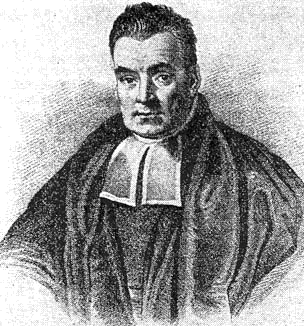Introduction to Bayesian reasoning
- Introduction to Bayesian Reasoning
- Historical Perspective of Bayesian Reasoning
- Understanding Priors
- Implementing Priors
- Advanced Bayesian Inference
- Bayesian Networks
- Bayesian Data Analysis
- Introduction to Bayesian Software
- Handling Complex Bayesian Models
- Bayesian Perspective on Learning
- Case Study: Bayesian Methods in Finance
- Case Study: Bayesian Methods in Healthcare
- Wrap Up & Real World Bayesian Applications
Historical Perspective of Bayesian Reasoning
Bayes' Theorem – The Math Behind It

British mathematician and Presbyterian minister (*1701 – †1761).
Bayes' Theorem is a fundamental principle in the field of statistics and probability, and it forms the backbone of Bayesian reasoning. Named after Thomas Bayes, who first provided an equation that allows new evidence to update beliefs, it serves as a mathematical representation of how our beliefs should change in light of new evidence.
Introduction to Bayes' Theorem
Bayes' Theorem is a method for calculating conditional probabilities. It is a way of finding a probability when we know certain other probabilities. The formula is as follows:
P(A|B) = [P(B|A) * P(A)] / P(B)
Where:
- P(A|B) is the probability of event A given event B is true.
- P(B|A) is the probability of event B given event A is true.
- P(A) and P(B) are the probabilities of observing A and B independently of each other.
This theorem is powerful because it allows us to update our initial beliefs (the prior probabilities) with new evidence to get a more accurate belief (the posterior probability).
Mathematical Derivation and Explanation of Bayes' Theorem
The derivation of Bayes' Theorem comes directly from the definition of conditional probability. The probability of A given B is defined as the probability of A and B occurring divided by the probability of B:
P(A|B) = P(A ∩ B) / P(B)
Similarly, the probability of B given A is defined as:
P(B|A) = P(A ∩ B) / P(A)
From these two equations, we can derive Bayes' Theorem. If we set P(A ∩ B) equal in both equations and solve for P(A|B), we get Bayes' Theorem.
Practical Examples and Applications of Bayes' Theorem
Bayes' Theorem is used in a wide variety of contexts, from medical testing to machine learning algorithms. For example, in medicine, it can be used to determine the probability of a patient having a disease given a positive test result. In machine learning, it is used in Bayesian networks, Naive Bayes classifiers, and as a theoretical framework for learning.
Understanding the Components of Bayes' Theorem
- Prior Probability (P(A)): This is our initial belief about the probability of an event before new evidence is introduced.
- Likelihood (P(B|A)): This is the probability of the new evidence given that our initial belief is true.
- Marginal Probability (P(B)): This is the total probability of observing the evidence.
- Posterior Probability (P(A|B)): This is the updated belief after considering the new evidence. It's what we're trying to calculate with Bayes' Theorem.
The Role of Bayes' Theorem in Decision Making
Bayes' Theorem is a powerful tool for decision making because it provides a mathematical framework for updating our beliefs based on new evidence. This is particularly useful in uncertain situations where we need to make decisions based on incomplete information. By continuously updating our beliefs as new evidence becomes available, we can make more informed decisions.
In conclusion, Bayes' Theorem is a cornerstone of Bayesian reasoning, providing a mathematical method for updating beliefs based on new evidence. Understanding this theorem and its components is crucial for applying Bayesian reasoning in decision making.